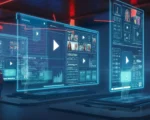Encountering the dreaded “error while loading shared libraries” in Linux can be frustrating for developers, system administrators, and Linux users alike. Whether you’re running an application or compiling software, resolving such errors often requires a systematic approach to identify and fix the root cause.
This troubleshooting guide explores the common causes of this issue and presents step-by-step solutions to help you resolve it effectively.
What Does “Error While Loading Shared Libraries” Mean?
Linux applications frequently rely on shared libraries (*.so files) for common functionality. These libraries reduce redundancy by allowing multiple applications to reuse the same code. However, when a program cannot locate a required shared library or encounters an issue with the library, it triggers an error like:
“`
error while loading shared libraries: [library name]: cannot open shared object file: No such file or directory
“`
Understanding the causes is key to troubleshooting.
Common Causes of the Error
- Incorrect Library Paths
The system’s dynamic linker configuration doesn’t include the directories containing the required libraries.
- Missing or Deleted Libraries
The library file required by the program was never installed or has been accidentally deleted.
- Version Conflicts or Compatibility Issues
The application requires a specific version of the library, which isn’t installed or is outdated.
- Insufficient Permissions
Permissions on the library files or directories might restrict access to critical users or groups.
- Build/Installation Configuration Issues
Errors during application compilation or improper installations can lead to broken dependencies.
Step-by-Step Solutions to Fix the Error
1. Check if the Required Libraries Are Installed
Run the ldd command to verify the shared library dependencies of your application:
“`
ldd <application-binary>
“`
Example output:
“`
linux-vdso.so.1 => (0x00007ffec0003000)
libexample.so => not found
libc.so.6 => /lib64/libc.so.6 (0x00007facabcd1234)
“`
The line libexample.so => not found indicates a missing library. To resolve:
- Identify the package providing the library using your package manager (e.g.,
apt-file searchoryum provides). - Install the missing library, e.g.:
“`
sudo apt install libexample-dev
“`
2. Update the LD_LIBRARY_PATH
If the library exists on your system but isn’t being detected, it might not be in the default library search paths. You can specify its location using the LD_LIBRARY_PATH environment variable:
- Temporarily set the path:
“`
export LD_LIBRARY_PATH=/path/to/library-directory:$LD_LIBRARY_PATH
“`
- Make the change permanent by adding it to
~/.bashrcor/etc/profile.
3. Update the Dynamic Linker Cache
Use the ldconfig command to ensure the system’s linker cache is up to date. First, add the library directory to the linker configuration at /etc/ld.so.conf.d/, then run:
“`
sudo ldconfig
“`
Example:
- Add the path:
“`
echo “/usr/local/lib” | sudo tee /etc/ld.so.conf.d/local-lib.conf
“`
- Update the cache:
“`
sudo ldconfig
“`
4. Verify File Permissions
Incorrect file or directory permissions can block access to libraries. Use the ls -l command to check:
“`
ls -l /path/to/shared/library.so
“`
The library should have read and possibly execute permissions for all necessary users. Fix them with:
“`
sudo chmod 755 /path/to/library.so
sudo chown root:root /path/to/library.so
“`
5. Confirm Architecture Compatibility
A common but overlooked issue arises from mismatches between library and application architectures (32-bit vs. 64-bit). You can verify architecture compatibility using the file command:
“`
file /path/to/library.so
“`
Example output:
“`
/path/to/library.so: ELF 64-bit LSB shared object
“`
If your application is 32-bit but the required library is 64-bit, install the 32-bit version of the library (often marked with an i386 suffix in package managers).
6. Reinstall or Recompile the Application
If the issue persists, the application may be improperly built or installed. Reinstall the application to ensure its dependencies are correctly configured:
“`
sudo apt reinstall <package-name>
“`
Alternatively, if you built the application from source:
- Reconfigure the build process using
--prefixto point to the correct library paths. - Recompile the code.
7. Use Diagnostic Tools
strace
Trace the system calls made by your application to identify where it fails:
“`
strace ./myprogram
“`
Look for errors like ENOENT (file not found) or EPERM (permission denied).
ldd -v
Use the verbose mode to gain additional insights into library version compatibilities:
“`
ldd -v ./myprogram
“`
8. Disable SELinux or AppArmor (If Necessary)
Security layers like SELinux or AppArmor may block access to certain libraries. Temporarily disable them to test if they’re causing the issue:
- For SELinux:
“`
sudo setenforce 0
“`
- For AppArmor:
“`
sudo systemctl stop apparmor
“`
Preventing Future Errors
- Always validate system requirements and dependencies when installing new software.
- Keep libraries up to date, but maintain compatibility for critical applications.
- Regularly check and update library paths (
ldconfig) during system maintenance. - Document custom library paths or installations to avoid future configuration issues.
Final Thoughts
Shared libraries are essential for efficient software operation on Linux systems—but they can introduce dependencies and troubleshooting challenges. By systematically debugging with tools like ldd, updating library paths using LD_LIBRARY_PATH, and maintaining proper file permissions, you can quickly resolve most instances of the “error while loading shared libraries.”
If you’re still facing issues after trying the above steps, consider consulting community forums or reinstalling your operating system to ensure consistent configurations across environments.
Suggested Reading:
- A visual explanation of the shared library concept.
- Screenshots of terminal commands (e.g.,
lddusage). - A step-by-step flowchart for debugging shared library errors.








